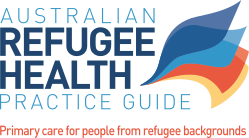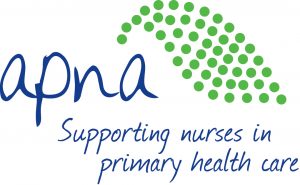Approach to consultation and management
“The way the doctor treats you personally is half the medicine…” Community consultation participant, QLD
Table of contents
Key points
- Person-centred care principles are useful to understand each individual’s background and current needs.
- A universal precautions approach to pre-migration trauma is recommended when caring for people from refugee backgrounds, including people seeking asylum.
- Consider health literacy and cultural factors in the delivery of health care.
Overview
Consider the impact of past trauma on the consultation when caring for people from refugee backgrounds.
Pre and post migration trauma may have an impact on people’s clinical presentations, their experience of the consultation and their ability to participate in management of their health concerns.
Communication difficulties may be further complicated by cultural and religious differences and a lack of familiarity with the Australian healthcare system.
Use person-centred care principles to build a relationship of trust and to understand each individual’s needs.
Trauma-informed approach to care
For some people from refugee backgrounds, particularly those experiencing psychological effects of torture or other traumatic events, the consultation may be a source of anxiety.
People from refugee backgrounds may have a distrust of authority figures, among them medical professionals.1,2 Humanitarian entrants, and people seeking asylum in particular, may mistakenly hold fears of deportation if they are found to have a serious health problem.
Symptoms such as memory loss, confusion, poor concentration and self-blame may affect the patient’s capacity to hear and understand instructions and to provide information to the doctor, nurse or other healthcare provider. Intrusive memories may be triggered in the course of the consultation.
Consultation
Conveying a sense of warmth and personal interest without rushing helps to build a therapeutic relationship.
Explain and emphasise patient confidentiality, patient consent, choice and control, and that this applies to all healthcare providers, settlement workers and professional interpreters.
- Review previous records in detail where possible. For example there may be an existing refugee health nursing assessment that includes information about the person’s journey, including trauma experiences. This helps avoid asking repetitive questions and the need for the patient to repeatedly relay traumatic material.
- Be aware that the clinical setting and aspects of the consultation may be reminders of past trauma (e.g. being made to wait, sudden movements, medical instruments).
- Explain why certain questions are necessary.
- Consider deferring sensitive questions and procedures such as mental health screening and sexual health until trust is established and there is sufficient time.
- Understand that patient fear and hostility are responses to trauma and may have little to do with the consultation.
- Defer invasive procedures until the process and reasons for undertaking them are fully understood.
- Consider suspending and rescheduling procedures if the patient becomes overly anxious.
Taking a detailed history of torture or other traumatic events is not recommended; assume your patient has had traumatic experiences based on their country of origin and journey. However, psychological and psychosomatic symptoms may persist and acknowledgement of their causes may be required for ongoing management. Consider asking about past trauma only if appropriate and there is adequate time for response.
For more information to ask about, and respond to, a disclosure of torture or trauma see Management of psychological effects of torture or other traumatic events.
Investigations
- Informed consent is essential for all investigations. However, it is not necessary to get a detailed history of past, possibly traumatic events before offering screening.
- Give clear explanations for all investigations.
- Respect client confidentiality, particularly for adolescents who should be seen without their parents or carers during at least part of the consultation.
Management
- Assessment and management can take place over several sessions if a gradual approach is indicated.
- Provide opportunities for the patient to ask questions or seek clarification about results. For example, ‘We have spoken about many things today, do you have any questions about anything we have talked about?’
- Patients may need to be actively encouraged to ask questions or seek clarification. Some will have had experiences in their country of origin or other countries where this was not encouraged by health practitioners.
- Consider gender issues. For example, male GPs may consider referring female patients to a female doctor; a male patient may prefer a male doctor.
- Establish if there are any cultural or religious factors that need to be accommodated in your care.
- Consider the diversity within cultural groups and across generations and avoid stereotyping.
- Consider differences in health explanatory models between the client and health practitioner.
- Use translated health information where available including internet video and audio resources and local peer health education if available.
Practice tip: Use the teach back technique to check understanding, especially when working with interpreters. Ask the patient, via interpreter if needed, to explain back to you what you have told them.
Referral
- Consider seeking a specialist’s advice about whether a referral is appropriate prior to making the referral.
- Travelling to a specialist or another health professional may require additional resources on behalf of the patient (e.g. cost of travel, arrangements for family or support person to travel with person).
- Explain the culture and the structure of the healthcare system; the role of the GP and specialists; and the patient’s healthcare entitlements and rights, such as the right to ask for a female or male healthcare provider, right to a professional interpreter, right to a second opinion.
See Prescribing tips
References
- Moreno A, Piwowarczyk L, et al. Human rights violations and refugee health. JAMA 2001; 285(9): 1215 as cited in Finney Lamb C, Smith M. Problems refugees face when accessing heath services. NSW Public Health Bulletin 2002;13:161–3
- Downs K, Bernstein J, et al. Providing culturally competent primary care for immigrant and refugee women: A Cambodian case study. J Nurse Midwifery 1997; 42(6): 499–508 as cited in Finney Lamb C, Smith M. Problems refugees face when accessing heath services. NSW Public Health Bulletin 2002;13:161–3




